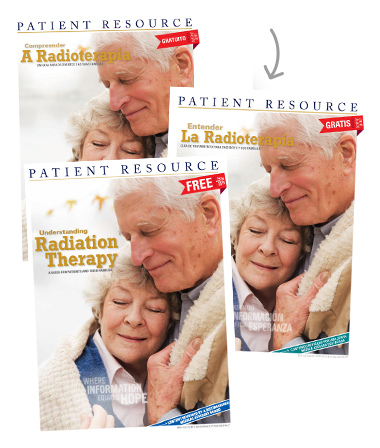
Radiation Therapy
Participating in a Clinical Trial
Radiation therapy has been used as cancer treatment for more than a hundred years. As radiation technology has improved, delivering radiation has gotten more precise — resulting in fewer side effects for the patient — because of clinical trials.
Before new forms or dose schedules of radiation therapy become available to patients, they are evaluated in clinical trials to evaluate whether the new treatments are safe and effective in humans. In addition, clinical trials help doctors determine a treatment’s side effects, dosage and the best way to administer it.
.jpg)
Clinical trials are often sponsored by government agencies such as the National Cancer Institute, independent groups of doctors and health care institutions, or the radiation/imaging companies or pharmaceutical/biotechnology companies that have developed the new treatment. The results of clinical trials help the U.S. Food and Drug Administration (FDA) decide whether to approve a new treatment, which is necessary for the treatment to be used in general practice. You may be eligible to participate in a clinical trial to receive treatment before it is approved by the FDA.
There are several ways that radiation treatment can be included as part of a clinical trial. In addition to studying new ways to deliver radiation to patients, there are trials that study radiation therapy given in combination with other kinds of treatment. Some trials investigate ways to treat side effects of radiation therapy, and still others may look at quality-of-life issues faced by people undergoing radiation therapy. When deciding if a radiation clinical trial is right for you, ask about whether the focus of the study is appropriate for your treatment needs.
Should you participate?
You may want to consider participating in a clinical trial for the following reasons:
- Your current treatment may not be working as well as expected, and a clinical trial may be a worthwhile alternative.
- A clinical trial may significantly improve your quality of life. Discuss your personal situation with your medical team.
- You may have a rare type of cancer that hasn’t been studied as much as other types.
- By simply participating, you play an integral role in helping refine and improve the way millions of people with all types and stages of cancer are treated. You will not only help identify treatments that do work, you’ll help eliminate those that don’t.
If you join a trial, you are guaranteed to receive at least the standard of care. There are no placebos involved in these trials. Institutional review boards or ethics committees carefully set up safeguards to make sure that all patients in the clinical trial remain safe throughout the process. Keep in mind that not everyone responds to treatments in the same way, so you cannot expect an identical experience in terms of response to treatment, side effects, etc. Regardless of the opinions and research you gather, participating in a clinical trial is ultimately your decision.
What to expect
Clinical trials are all highly strategic and performed in a totally consistent manner so that all patients are treated exactly the same. Whether you’re at a small hospital or a large facility in a metropolitan area, your physician will be responsible for diligently following all of the same safety measures for your treatment plan across the board.
When you volunteer to participate in a clinical trial, you will receive specific instructions but you are encouraged to ask questions about anything you don’t fully understand. This is the ideal time to talk with your medical team about the many falsehoods that persist about clinical trials. Remember, though there is fear to the contrary, participants are guaranteed to receive at minimum the current standard of care during the trial.
You will be carefully monitored throughout the clinical trial. Even after the treatment ends, you will continue to be in close contact with your medical team.
Risks and benefits
Clinical trials present many potential benefits. At the same time, they may also present risks, such as side effects. If you consider volunteering for a clinical trial, talk with your medical team about the expected benefits and risks so you can best manage your expectations.
Fear of the unknown is a common reason people with cancer hesitate to volunteer in clinical trials. It’s important to know that if you feel your expectations aren’t met or if you experience too many side effects, you can withdraw and return to standard treatment at any time.
Your medical team can give you more information about clinical trials in your area, but they may not be aware of trials available in other locations. Using online tools such as these allow you to search for clinical trials that may apply.


